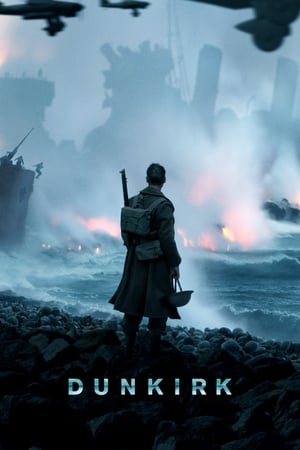
Dunkirk
**Considering the quality and talent of those involved, the budget and all the variables, the film is unforgivably disappointing.** The Dunkirk disaster was one of the opening moments of World War II: in the face of the unstoppable advance of German troops, a mixture of British, Belgian and French soldiers were pushed into the English Channel, fortifying themselves in the French city of Dunkirk. The prospects could not be worse: in a few weeks, hundreds of thousands of exhausted Allied soldiers found themselves surrounded by a powerful Panzer division and under constant attack by German aviation, having no port capable of evacuation, which would be carried out by smaller vessels in the so-called “Operation Dynamo”. And everything indicated that, after France, it would be England that suffered the German invasion, so the British could not be more apprehensive. Despite the fact that the film paints the episode in a positive light (trying to highlight the ability that the British had to successfully evacuate their troops), there is no doubt that Dunkirk was a disaster and is, even today, one of the most humiliating moments of British military history, comparable to a similar situation that occurred in 1809 in A Coruña, where British soldiers also found themselves between the sea and the enemy, this time Napoleon's army. Moreover, this film turns out to be a kind of remake of a film with the same name and the same theme made in the 50s. Directed by Christopher Nolan (a talented and fashionable director), the film has a cast full of strong names in the industry. Mark Rylance has the most prominence in the role of a civilian, owner of a small yacht, who decides to go personally to rescue soldiers with his sons. Tom Hardy also gives us an excellent job, in the role of a British aviator who helps as he can. Cillian Murphy is believable in his work, giving us an idea of the shock a soldier can experience in a combat situation. Harry Styles and Aneurin Barnard also deserve a positive note. Sir Kenneth Branagh stands out, embodying the figure of British stoicism, but I found his character somewhat forced to be more impassive than would be plausible in that situation. Despite its merits, it is an indisputably cold and unexciting film. Anyone expecting incredible shootouts or grandiose battle scenes will be disappointed and have to settle for some good dogfight-style fighter combats and some more tense scenes, but which never materialize in combat scenes worthy of a great war movie. And considering the number of soldiers surrounded there, one would expect to see a crowd of soldiers... however, this only happens occasionally, and it even seems that production has saved on the means. Written in a simplistic way, the script distracts attention and places more emphasis on what is happening in the sea and in the sky, so the German threat is something that we don't quite understand and that the film doesn't waste time explaining. With me, that wasn't a problem, but the worst History students will have to read a little to find out what's going on. The characters are also not developed: there is no concrete villain because the enemy soldiers are collectively, so there is also no undisputed protagonist character. Technically, it has several merits and demerits to consider. On the one hand, it is an authentic visual spectacle thanks to a masterful filming work and a remarkable and very well crafted cinematography. The sound also deserves praise thanks to very good effects, very well-used and, of course, a tense and efficient soundtrack signed by Hans Zimmer (in yet another collaboration with Nolan). Unfortunately, the editing is bad and, if the script already had flaws, the non-linear narrative accentuated them even more, making the film confusing and strange.
